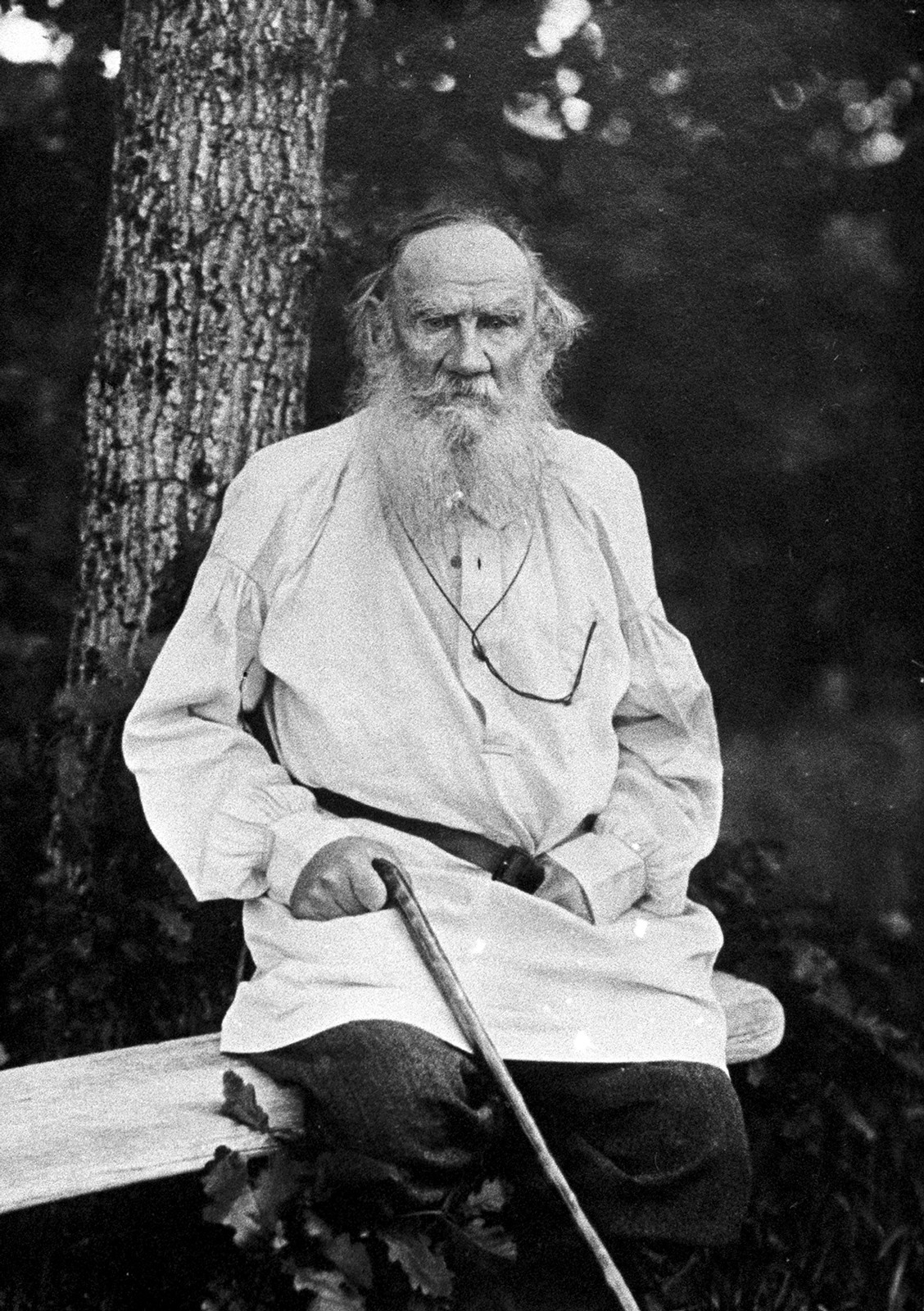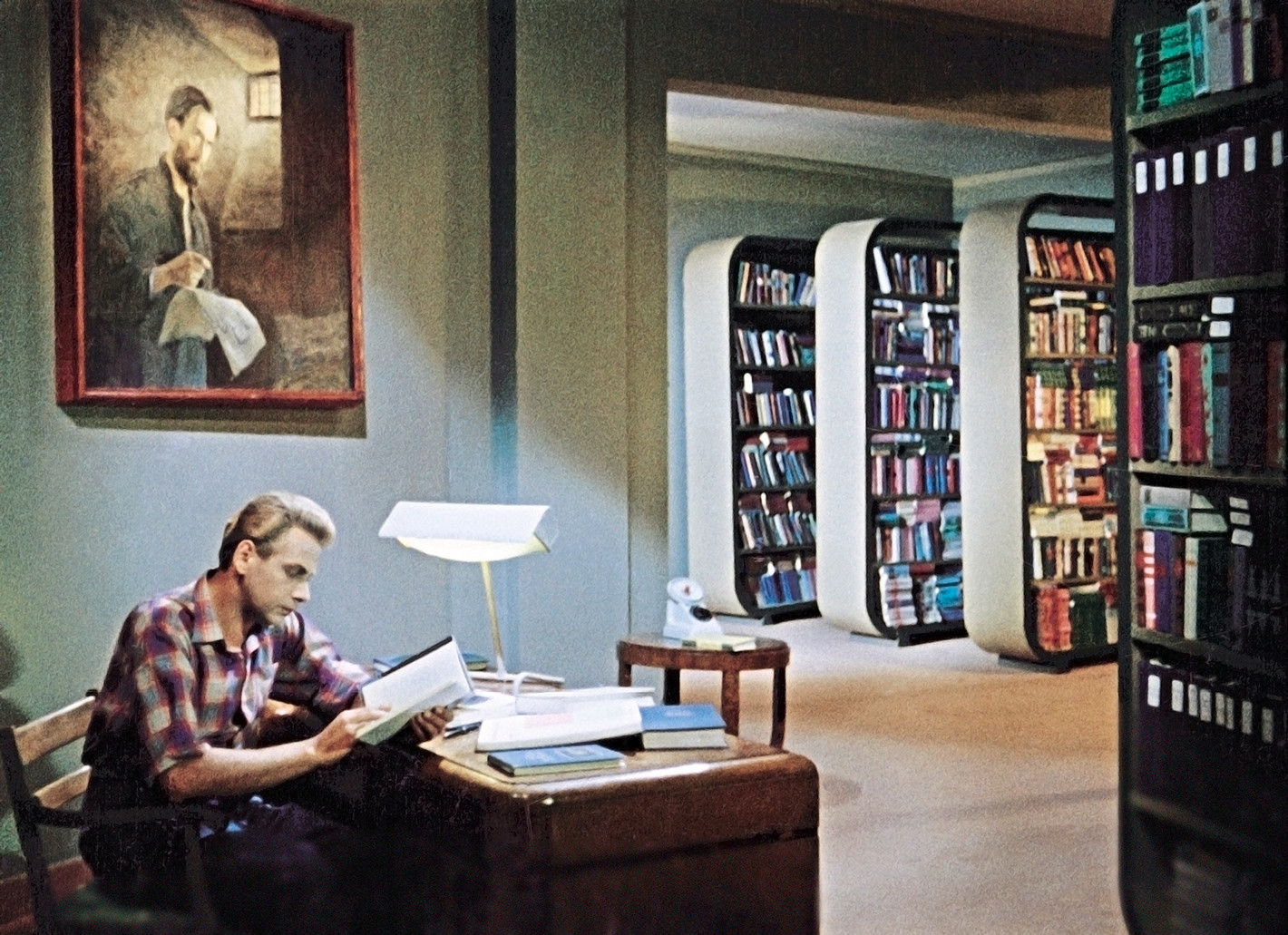What proves that the russians are a reading nation
What proves that the russians are a reading nation
What proves that the russians are a reading nation
Dates & Events
16 August 2022
Moscow time:
| Su | Mo | Tu | We | Th | Fr | Sa |
| 31 | 1 | 2 | 3 | 4 | 5 | 6 |
| 7 | 8 | 9 | 10 | 11 | 12 | 13 |
| 14 | 15 | 16 | 17 | 18 | 19 | 20 |
| 21 | 22 | 23 | 24 | 25 | 26 | 27 |
| 28 | 29 | 30 | 31 | 1 | 2 | 3 |
All events
 |
A couple of decades ago Soviet people were regarded as the most reading all over the world. Inexorable statistics confirmed this fact. Frankly speaking, that was true: in parks, underground stations or buses one could come across people reading newspapers, books and magazines. The book used to be a precious object providing information and cherishing imagination and thoughts of wonderful future or past. Surely, not all works of art were sold in Soviet bookshops; many didn’t happen to pass the censor and were distributed secretly and illegally. To own a rare book meant much then, that is why almost every family tried to collect a home library (classic literature prevailed on shelves). A narrow range of choice made people profoundly study the problems offered by not numerous authors allowed for publication. I still remember the scientific almanac Eureka! full of remarkable ideas and discoveries on space, medicine, engineering, etc. This book inculcated love for science and developed mind abilities.
However, good taste for books seems to disappear nowadays. Supposedly, you will find readers in transport, but books… they are not the same. Common people willing to while away the time in a bus or a train read detectives or love novels, which can’t be referred to belles-lettres literature. Complicated novels or poems are not in favour, pushed in the back of bookcases. Although, some people believe their time will come.
Philosophical works receded into the background, since incredibly fast life tempo leaves no opportunity to stop and think. To my mind, this is one of the most obvious reasons, why e.g. science fiction has lately been replaced with light fantasy books. As for teenagers, you can hardly find one, who reads for pleasure. They are so obsessed with computers, cell phones, online games, that books inevitably lose the battle with modern technologies. Teenagers think reading is boring, especially as school teachers make them concentrate on classics, which is not easy to understand. Moreover, Russian classic literature studied at high school very often kills the desire to read. I will never forget the time before school final examinations, when I had to read Crime and punishment, write down important quotations and look through critique to the book within two days. Since then I’ve hated Dostoevsky and don’t think will ever read another book by him.
Nevertheless, despite all problems the modern life throws into us, we still read. Bookshops are always crowded: some people look for bestsellers, but there are those, who try to find a rare book, the book that can arouse thoughts and teach.
January 19, 2007 16:24
niku :
In India we have had many good books from USSR. They are the reason many people (including me!) find science interesting. Old book shops all over the country still have them! And I love ‘Crime and Punishment’.
Added: 16 June 2007 09:25
What proves that the russians are a reading nation
You are going to give a talk about the mass media. You will have to start in 1,5 minutes and speak for not more than 2 minutes (10-12 sentences). Remember to say:
— what proves that the Russians are a reading nation;
— what kind of information most papers and magazines contain;
— what kind of mass media modern teenagers enjoy reading;
— what kind of mass media you prefer.
You have to talk continuously.
Most newspapers contain news, reviews of books, films and events, art and TV shows, sports events covers, detailed articles on international and home affairs. The majority of magazines contain news about celebrities, reviews of various events and a huge number of detailed articles on different aspects of daily life. The most common thing for mass media nowadays is the big amount of advertisements everywhere.
I believe that it is quite easy to find newspapers and magazines for teenagers, but I don’t think that they read paper versions a lot. We have the Internet access nearly everywhere, that is why a lot of magazines and newspapers have on-line, or so-called digital versions. When young people read such mass media sources they learn much about every day life all over the world. Some people read foreign magazines and learn a lot of English phrase and words.
I am the one, who prefers digital magazines and newspapers, that are better than my newsfeed on any social network. I prefer reading English versions of my favourite magazines, they help me master my skills and broaden my horizons.
| Критерии оценивания ответа на задание С4 | Баллы |
|---|---|
| Решение коммуникативной задачи (К1) | |
| Задание выполнено полностью: цель общения достигнута, тема раскрыта в полном объёме (полно, точно и развёрнуто раскрыты все четыре аспекта, указанных в задании). Объём высказывания: 10–12 фраз | 3 |
| Задание выполнено: цель общения достигнута, НО тема раскрыта не в полном объёме (один аспект раскрыт не полностью). Объём высказывания: 8–9 фраз | 2 |
| Задание выполнено частично: цель общения достигнута частично, тема раскрыта в ограниченном объёме (один-два аспекта не раскрыты, два аспекта раскрыты не в полном объёме, остальные аспекты раскрыты полно и точно). Объём высказывания: 6–7 фраз | 1 |
| Задание не выполнено: цель общения не достигнута: три аспекта содержания не раскрыты*. Объём высказывания: 5 и менее фраз | 0 |
| Организация высказывания (К2) | |
| Высказывание логично и имеет завершённый характер; имеются вступительная и заключительная фразы, соответствующие теме. Средства логической связи используются правильно | 2 |
| Высказывание в основном логично и имеет достаточно завершённый характер, НО отсутствует вступительная заключительная фраза, имеется одно-два нарушения в использовании средств логической связи | 1 |
| Высказывание нелогично И/ИЛИ не имеет завершённого характера, вступительная и заключительная фразы отсутствуют; средства логической связи практически не используются, или допущены многочисленные ошибки в их использовании | 0 |
| Языковое оформление высказывания (К3) | |
| Использованный словарный запас, грамматические структуры, фонетическое оформление высказывания соответствуют поставленной задаче (допускается не более четырёх негрубых лексико-грамматических ошибок И/ИЛИ не более трёх негрубых фонетических ошибок) | 2 |
| Использованный словарный запас, грамматические структуры, фонетическое оформление высказывания соответствуют поставленной задаче (допускается не более пяти негрубых лексико- грамматических ошибок И/ИЛИ не более четырёх негрубых фонетических ошибок) | 1 |
| Понимание высказывания затруднено из-за многочисленных лексико- грамматических и фонетических ошибок (шесть и более лексико- грамматических ошибок И/ИЛИ пять и более фонетических ошибок) ИЛИ более трёх грубых ошибок | 0 |
| Максимальное количество баллов | 7 |
*Примечание. При получении экзаменуемым 0 баллов по критерию «Решение коммуникативной задачи» всё задание оценивается в 0 баллов.
Do Russians read the most?
When you have lots of opportunities to entertain yourself, reading isn’t always the first choice.
According to a global study on book reading, which was conducted by GfK in 2017, 59% of Russians read every day or at least once a week – that’s second place in the world after China. This fact remains doubtful, however, (it is based on people’s answers only), but if it is correct, such a large number of readers hardly surprises anyone in Russia. Historically, this country has always been literature-centric: in Russia, as Yevgeny Yevtushenko wrote, “a poet is more than just a poet.” The same goes with those who write in prose.
Of course, Tolstoy’s case was very peculiar: since the 1880s, he had become more of a philosopher and a public figure than a fiction writer. Nevertheless, other literature giants of the 19th-20th century – Feodor Dostoevsky, Ivan Turgenev, Anton Chekhov, Maxim Gorky and so on – also impacted Russian public opinion with their humanistic novels, which was certainly more influential than any tsarist minister and his orders. That’s when Russia’s obsession with literature started.
Literature replaces politics
Leo Tolstoy dominated Russia’s cultural and social life in the early 20th century.
“In the 18th to 20th centuries, public life in Russia was all about literature,” explains Lev Oborin, a poet and literary critic. While in the West monarchs were slowly giving up power to parliamentary systems, the Emperor enjoyed a monopoly on all forms of power – so the only place to criticize the powers-that-be was on the pages of a novel.
“Due to the absence of actual politics, writers became defenders of freedom, and enlighteners,” Oborin writes. They had no other choice but to write about the state of mind of ordinary Russians, the evils of serfdom, the strange nature of the Russian soul balancing between West and East, and so on – using metaphors and allegories to escape censorship.
Sadly, the vast majority of Russians didn’t know a thing about the intellectual struggle of their writers, as they couldn’t read. According to the national census of the late 19th and early 20th centuries, at least 60% of Russian adults were still illiterate in 1913. Only the Soviet government managed to provide its people with education – and make them read the great writers of the imperial period.
Soviets embrace the classics
In the Soviet Russia, they surely printed a lot.
Though brutal in terms of destroying their political rivals (and later, themselves), the fact is that the Bolsheviks improved the level of education: by 1939, 87% of Soviet citizens knew how to read and write, and the ever-controlling state did its best to provide them with all the literature they needed. As long as it fell in line with Marxist ideals.
The Soviet period was when the literary canon of the school program was formed – the one that we still have at school, though slightly changed today: Alexander Pushkin, Leo Tolstoy, Anton Chekhov, and so on. “Those writers were dissidents for the Tsarist regime… Soviet ideology benefitted from taking so-called ‘revolutionary democrats’ as their allies… even though not all of them were socialists,” explains Lev Oborin.
Crooked publishing empire
There were plenty of books in the USSR; paradoxically, it was quite hard to get the ones you actually wanted to read.
Of course, the state decided what to publish. Russian classics? Sure. Some non-too-provocative foreign prose (Hemingway, Remarque, Salinger)? Okay. But don’t forget the complete works of Lenin, Marx and Engels. And, for instance, memoirs of Leonid Brezhnev on his experience fighting in World War II – 20 million copies were published in 1978.
The USSR spared no amount of paper on enormous print runs: by the 1980s, billions of copies were sold. “There were around 50 billion copies in home libraries [throughout the USSR],” writes historian Alexander Govorov in History of the Book. This provided the basis for the USSR calling itself ‘the nation that reads the most’ – a formula that is still very popular and pops up every time someone revels in nostalgia for the ‘great’ Soviet times.
The only problem was the total absence of choice. “The print runs grew bigger but public demand remained unsatisfied,” emphasizes Govorov. People wanted fiction and entertaining literature but the state kept on feeding them Marxist books, lying in piles in book shops, unsold.
“They published enough books in terms of quantity but what they published in the circumstances of ideological and economic diktat didn’t reflect what customers wanted to read,” Govorov sums up. In such circumstances, no one but literary critics cared about Leo Tolstoy anymore – people desired the freedom to read what they wanted.
Current stance
Nowadays in Russia, like elsewhere, people always seem to be distracted, including from reading.
During perestroika in the late 1980s, which was followed by the USSR’s collapse, they got their chance. It is a long and quite a peculiar story of how the book market emerged and developed in contemporary Russia – but three decades on it exists like everywhere in the world. And even if Russians once were the nation that read the most, that’s no longer the case.
As we mentioned before, 2017 GfK’s research ranked Russia second in the world in the number of readers. But people from the Russian publishing industry doubt such an optimistic rating.
“We follow sales on the book market, and they [currently] are not growing in Russia,” said Yelena Solovyova, editor-in-chief of Book Industry magazine.
In fact, print runs have been slowly falling during the last 10 years: from 760 billion copies printed in 2008 to 432 billion in 2018. This is a very complicated matter to research, however, due to the growth of electronic book sales, as well as the completely unstudied pirate market.
Anyway, current Russian interest towards literature is stable, but future prospects are not encouraging – there is no Leo Tolstoy on the horizon and the years of Soviet megalomaniac printing have ended. Today, people prefer other types of entertainment: literature must compete with Netflix, YouTube and zillions of web pages, so the chances of victory are not good. But this is a global trend.
“All over the world, interest towards reading is declining, and Russia, unfortunately, is following the same trend,” admits literary critic Galina Yuzefovich. “But in recent years it became absolutely clear: reading has a stable and core audience that will never trade a book for other kinds of entertainment.”
So while Russia may be reading less than before, it is very unlikely that it will ever give up reading for good.
If using any of Russia Beyond’s content, partly or in full, always provide an active hyperlink to the original material.
What proves that the russians are a reading nation
Чтобы купить курс,
пожалуйста, войдите
или зарегистрируйтесь
Быстрая регистрация
Английский язык ((C4). Тематическое монологическое высказывание)
Приобретите наш курс
Для продолжения просмотра купите полный курс
наших видеоуроков
You are going to give a talk about the mass media. You will have to start in 1,5 minutes and speak for not more than 2 minutes (10-12 sentences). Remember to say:
— what proves that the Russians are a reading nation;
— what kind of information most papers and magazines contain;
— what kind of mass media modern teenagers enjoy reading;
— what kind of mass media you prefer.
You have to talk continuously.
It is a well-known fact that the Russians are a reading nation, as it is impossible to imagine our life without news, newspapers, magazines and books. Millions of copies of them appear every day, and they are usually sold really quickly.
Most newspapers contain news, reviews of books, films and events, art and TV shows, sports events covers, detailed articles on international and home affairs. The majority of magazines contain news about celebrities, reviews of various events and a huge number of detailed articles on different aspects of daily life. The most common thing for mass media nowadays is the big amount of advertisements everywhere.
I believe that it is quite easy to find newspapers and magazines for teenagers, but I don’t think that they read paper versions a lot. We have the Internet access nearly everywhere, that is why a lot of magazines and newspapers have on-line, or so-called digital versions. When young people read such mass media sources they learn much about every day life all over the world. Some people read foreign magazines and learn a lot of English phrase and words.
I am the one, who prefers digital magazines and newspapers, that are better than my newsfeed on any social network. I prefer reading English versions of my favourite magazines, they help me master my skills and broaden my horizons.
Тема / Топик по английскому языку:
Newspapers of Russia
Russians are a reading nation. It is impossible to imagine our life without newspapers. Millions of copies of them appear every day. Many people subscribe to two or more newspapers, others buy newspapers at the newsstands.
There are national daily newspapers, such as the «Izvestiya», the «Segodnya», the «Komsomolskaya Pravda», the «Trud», the «Ekonomitcheskaya Gazeta», the «Nezavisimaya Gazeta», the «Sovetskaya Rossiya». There are also national weekly newspapers, such as the «Argumenti i Fakti», the «Nedelya», the «Literaturnaya Gazeta». Most national newspapers express political opinion, and people choose them according to their political beliefs.
Most newspapers contain news, detailed articles on home and international affairs, reviews of books, art and TV shows. Many of them also cover sports events.
There are local newspapers in every city and town of Russia. The most popular local newspapers in Moscow are the «Moskovsky Komsomolets» and the «Vechernyaya Moskva». There are also a lot of free newspapers in Moscow. They are delivered to people’s homes whether they like it or not. They usually contain advertisements.
One can also find newspapers for teenagers and children, for sports fans and people of different professions, and newspapers for women.
There is also a newspaper for people studying the English language, «The Moscow News». When one reads this newspaper, he or she learns much about everyday life in Russia and Great Britain. One also learns a lot of English words and phrases.
Topical Vocabulary
Источники информации:
- http://en-oge.sdamgia.ru/problem?id=2839&print=true
- http://www.rbth.com/arts/330464-russian-read-books
- http://5splusom-school.ru/trening/651/8/35/
- http://lingust.ru/english/%D1%82%D0%B5%D0%BC%D1%8B-%D0%BF%D0%BE-%D0%B0%D0%BD%D0%B3%D0%BB%D0%B8%D0%B9%D1%81%D0%BA%D0%BE%D0%BC%D1%83-%D1%8F%D0%B7%D1%8B%D0%BA%D1%83/%D1%82%D0%BE%D0%BF%D0%B8%D0%BA24








